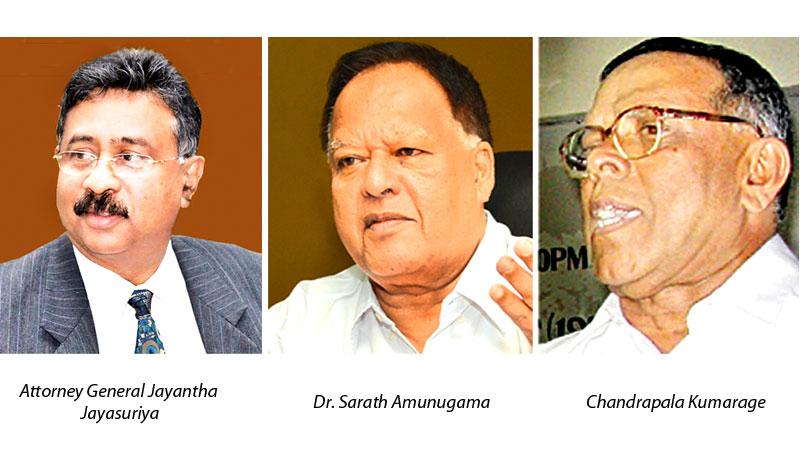
With the large number of investigations into alleged misappropriations of government property and other misdemeanors, the government is now looking to re-establish the Criminal Justice Commission (CJC). This idea, heavily backed by Dr. Sarath Amunugama, Minister for Special Assignments, has managed to gain the nod from 14 other Cabinet Ministers, amounting to one third of the Cabinet. The proposed provisions are currently under the scrutiny of the Attorney General, to verify their legality.
Speaking to the Sunday Observer, The Attorney General and President’s Counsel Jayantha Jayasuriya said, the Department is currently perusing the document, to determine its legality.
“As per the Cabinet decision, the matter has been referred to us and we will be making our observations within the next two weeks,” he said.
Sri Lanka established a Criminal Justice Commission under Prime Minister Sirimavo Bandaranaike’s Government on two occasions. The first was to curb, and try offenders in connection with the JVP uprising. The cases were heard before a bench of judges appointed by the Chief Justice.
The second was established to try offenders involved in exchange control frauds. It was under this branch that offenders such as, Mubarak Thaha were tried and convicted. Since the laws pertaining to the CJC were repealed in 1977, the current government is now faced with the hurdle of passing the Bill in Parliament.
Although the provisions have not yet been publicized, the Cabinet paper however provided for the following: it is imperative that matters are tried and offenders found guilty in a transparent and expeditious manner, expeditious, being the operative word here.
The Sunday Observer spoke to several veterans in the field for their input on this piece of legislature that soon will see the light of day. Attorney at Law Chandrapala Kumarage, a senior counsel says, although Parliament has the power to bring the CJC back into operation, if laws are introduced retrospectively, it cannot be sustained legally.
Kumarage said: “Penal laws cannot be passed retrospectively. It is a violation of the Constitution, as well as a violation of international norms. So, if there is a provision to introduce the sequestration of civic rights, it will be a violation of the principles of natural justice, the Constitution and international covenants. That in itself is illegal. And, even under principles of natural justice, it is not permitted.
“There was a coup in 1962, they were tried in courts but laws were passed with retrospective effect. After their conviction they appealed to the Privy Council - which held that passing laws with retrospective effect was a violation of the law. So, in appeal they were acquitted, (King v Liyanage).”
Speaking on the introduction of the CJC under the Bandaranaike government Kumarage said:
“Earlier, the CJC was introduced to deal with the insurgents and to try people involved in the foreign currency racket. Of course, they were tried according to the laws of the country. It comprised judges of the SC and all guarantees of a fair trial were given to the accused, and thereafter, some were acquitted and even those who were punished were sentenced according to the penal laws of the country. There were no provisions for the taking away of civic rights”.
Kumarage says, under the new provisions, offenders convicted might be stripped of their civic rights.He said:
“According to what I have read so far, and what was reported, there are provisions to take away civic rights, in addition to the punishment. But, if the intention is to punish those people who are already alleged to have committed an offence, taking away their civic rights is something that is not permitted under the Human Rights and Fundamental Rights chapter of the Constitution, as well as, international covenants of civil and political rights, in which Sri Lanka is a state party.”
President’s Counsel Shavindra Fernando was of the view that what was most important was the guarantee of a fair trial. He said; “I am not in a position to comment extensively as I have not been able to see the provisions of this Act. However, if it satisfies the minimum requirements of a fair trial, then Parliament is free to pass the law introducing the CJC. But, in the earlier CJC Act and the Commission, there was criticism that it was politically motivated and did not have sufficient safeguards to justify a fair trial.”
S. W Premarathne, senior counsel was of the view that the introduction of the CJC is a proactive move in establishing a proper system to deal with the rising acts of corruption and the failure to convict any person involved in corruption.
“The reasoning behind the introduction of the CJC is, to circumvent the delay in justice and avoid a backlog, so that perpetrators are found guilty and punished. I believe, it’s a good decision in the right way,” he said.
